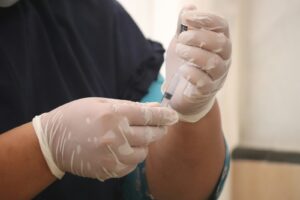Hancock defends care home testing scheme
The health secretary has defended the government’s efforts to test care home residents and staff for coronavirus, as sector leaders call for faster results.
Appearing yesterday (7 June) on BBC1’s Andrew Marr Show, Matt Hancock said the government has delivered tests to ‘every care home that is eligible both for staff testing and for residents to be tested’.
‘I have not said that we have tested everybody,’ added Mr Hancock.
‘What I’ve said is the tests have been delivered. Now the care homes themselves asked us to do it in this way because they say that we were right at the start of this requiring them to send back the tests within a very short space of time.’
According to figures from the Department of Health and Social Care, the government has now provided 1,071,103 test kits to 8,984 care homes and is now able send out over 50,000 test kits a day.
But the figures came as the National Care Forum (NCF) published details of a survey, which shows that 43% of care homes tested have received test results which included void and inconclusive results.
And in addition, 12% are still waiting for results.
The survey also showed that 87% of care homes have been tested by 2 June, while the remaining 13% are still waiting to receive home testing kits.
‘Our survey results highlight some key lessons that we have learnt from this first round of testing in terms of accuracy, timeliness and frequency,’ said NCF executive director, Vic Rayner.
‘It is clear that there is a need to improve the accuracy and timeliness of the results from testing to enable social care providers to respond quickly to manage and prevent COVID-19 infections.
‘Our findings also highlight key insights into the number of COVID-19 positive tests in asymptomatic staff and residents which emphasises why it is absolutely vital that we move to regular and repeat testing as it is an essential tool in the fight against COVID-19,’ she added.
‘The findings related to the proportion of symptomatic residents who are not testing positive reinforces the need for regular, repeat testing to avoid unnecessary isolation and the impact this has on the mental health and wellbeing of residents.’
Photo Credit – Pixabay
















